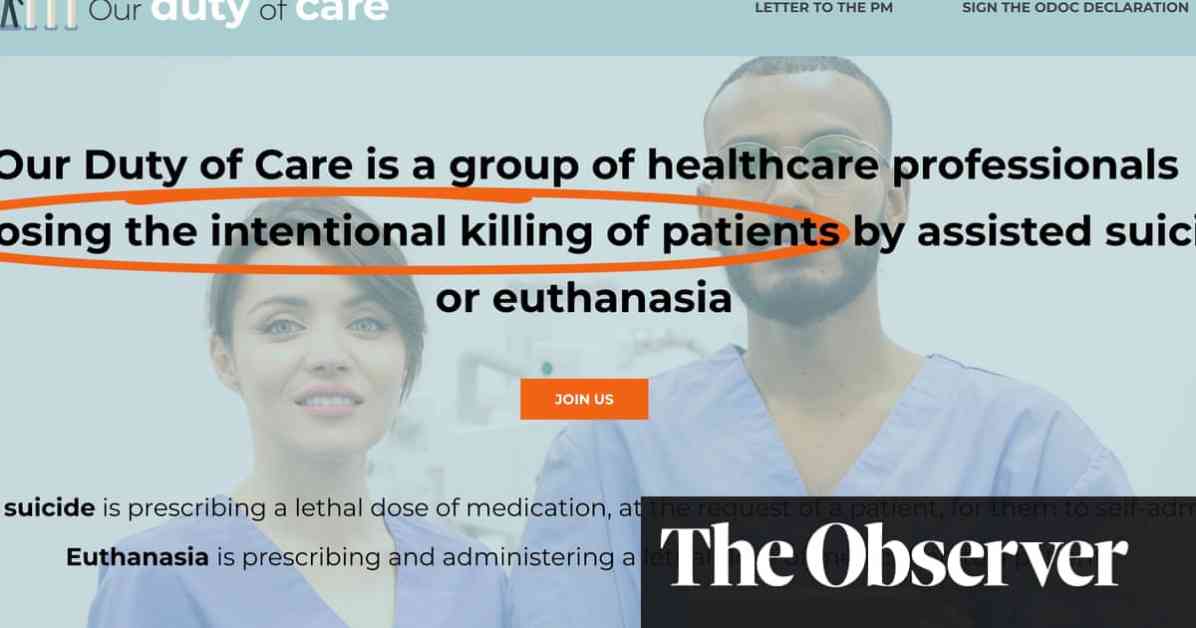An investigation by The Observer has revealed that campaigns against assisted dying, which claim to be led by healthcare workers and disabled individuals, are actually being coordinated and financed by conservative Christian organizations. These so-called “grassroots” campaigns have played a significant role in the debate around legalizing assisted dying in England and Wales ahead of a crucial vote by MPs.
One such campaign, Our Duty of Care, presents itself as a group of UK healthcare professionals who oppose assisted suicide or euthanasia. Despite being portrayed as a doctor-led initiative with no religious affiliation, Our Duty of Care is closely linked to religious lobby groups such as the Christian Medical Fellowship and Care. Care, known for its conservative views on abortion, sex education, and LGBTQ+ rights, has provided undisclosed grants to Care Not Killing, which funds and operates the Our Duty of Care campaign.
Similarly, the Better Way campaign, which claims to be non-political and not-for-profit, was co-founded by a press officer at Care. While it does not openly disclose its ties to religious organizations, the involvement of these groups raises questions about transparency and accountability in shaping the assisted dying debate.
Another campaign purportedly representing hundreds of disabled individuals has received funding from Care and held joint protests with an evangelical organization that opposes assisted dying on religious grounds. The lack of disclosure regarding these connections on the campaign’s website raises concerns about hidden agendas influencing the public debate.
Experts have highlighted that these orchestrated campaigns may be a form of astroturfing, creating a false impression of widespread opposition to assisted dying. By using healthcare professionals and individuals with disabilities as the face of these campaigns, religious interest groups aim to legitimize their stance and sway public opinion.
As the debate intensifies before the upcoming vote on assisted dying legislation, concerns have been raised about the true motivations of groups attempting to influence lawmakers. Transparency and honesty in disclosing affiliations and funding sources are crucial to ensure a fair and informed deliberative democratic process.
While organizations like Dignity in Dying and Humanists UK advocate for legalizing assisted dying to provide terminally ill individuals with end-of-life choices, opposition groups express concerns about potential coercion and call for improved palliative care services. The proposed legislation would allow mentally competent adults in England and Wales expected to die within six months to access assisted dying under strict conditions.
Despite widespread public support for reform, campaigns against assisted dying continue to shape the narrative leading up to the parliamentary vote. The involvement of religious organizations and the lack of transparency in disclosing ties to these groups underscore the complex dynamics influencing the assisted dying debate in the UK.












